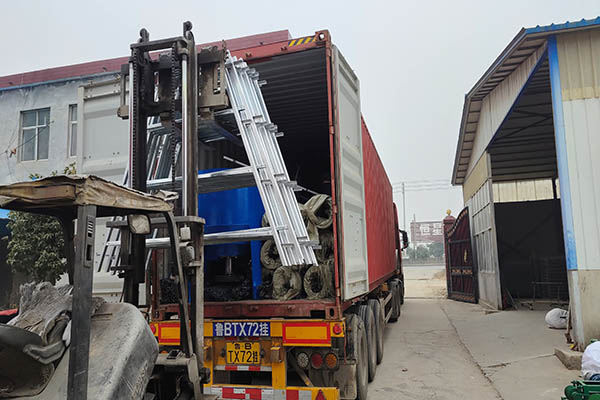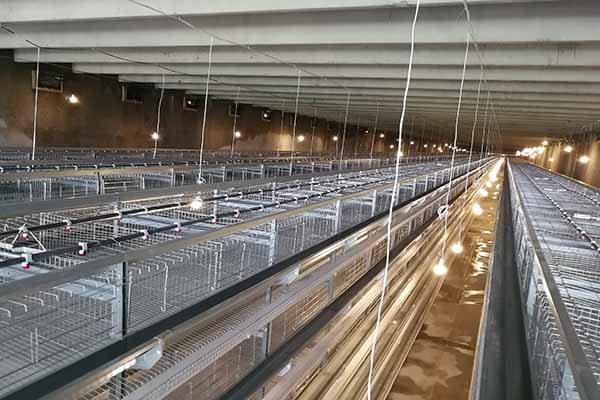Maximizing Efficiency in Kenyan Chicken Farming with Data Management Systems
Time : 2025-04-24
Chicken farming in Kenya has seen a surge in recent years, and with this growth comes the need for advanced farming equipment and efficient data management systems. In this article, we’ll delve into the latest trends in Kenyan chicken farming equipment and how a robust data management system can help streamline operations, reduce costs, and increase productivity. Let’s dive in!
The State of Chicken Farming in Kenya
Kenya has a long-standing tradition of chicken farming, and it’s now one of the leading producers of poultry in Africa. With a population that continues to grow, the demand for chicken meat and eggs has also surged. This has led to an increase in the number of chicken farms, both large and small, across the country.
Challenges Faced by Chicken Farmers
Despite the growth, Kenyan chicken farmers face several challenges:

- Resource Limitations: Many farmers struggle with limited access to quality feed, vaccines, and healthcare for their chickens.
- Market Access: Small-scale farmers often find it difficult to access local and international markets due to lack of infrastructure and knowledge.
- Data Management: Keeping track of the health, growth, and productivity of their chickens can be a daunting task without the right tools.
Introduction to Data Management Systems
Data management systems (DMS) are software applications designed to organize, store, and analyze data. In the context of chicken farming, a DMS can help farmers monitor their flock’s performance, predict trends, and make informed decisions. Here’s how a DMS can benefit Kenyan chicken farmers:
Tracking Health and Growth
With a DMS, farmers can keep a detailed record of their chickens’ health, vaccinations, and growth. This data allows them to identify any issues early and take corrective action before they become costly problems.
Optimizing Resource Use
By analyzing the data from their DMS, farmers can optimize the use of resources such as feed, water, and electricity. This not only reduces costs but also helps in sustainable farming practices.
Predictive Analytics
A DMS can use predictive analytics to forecast market trends, demand for eggs and meat, and even potential disease outbreaks. This helps farmers make strategic decisions that can lead to better profitability.
The Role of Farming Equipment in Data Management
In order to effectively manage data, farmers need the right farming equipment. Here are some key pieces of equipment that can be integrated with a DMS:
Automated Feeders
Automated feeders can distribute feed according to the nutritional needs of each chicken, ensuring they receive the right amount at the right time. This can be tracked and recorded by the DMS for further analysis.

Sensors and Monitoring Devices
Modern sensors can monitor environmental conditions, such as temperature and humidity, and the health of the chickens. This data is then sent to the DMS for real-time analysis and alerts.
Mobile Data Capture Devices
Mobile devices like smartphones and tablets allow farmers to easily input data into the DMS while they are on the farm. This ensures that data is up-to-date and accurate.
Choosing the Right Data Management System
With so many data management systems available, it’s important for Kenyan chicken farmers to choose the right one for their needs. Here are some factors to consider:
Usability
The DMS should be easy to use, with an intuitive interface that even less-tech-savvy farmers can navigate.
Customization
Look for a DMS that can be customized to fit the specific needs of your farm, whether you’re a large-scale producer or a small-scale farmer.
Integration Capabilities
The DMS should be able to integrate with various farming equipment and software to ensure seamless data flow and analysis.
Conclusion
Implementing a data management system in Kenyan chicken farming can bring numerous benefits, from improving health and growth tracking to optimizing resource use and predicting market trends. By investing in the right farming equipment and choosing a user-friendly DMS, farmers can take their operations to the next level and contribute to the growth of the poultry industry in Kenya.

Takeaways
- Data management systems are crucial for modern chicken farming.
- Advanced farming equipment can integrate with DMS to improve efficiency.
- Choosing the right DMS is key to maximizing benefits for your farm.











